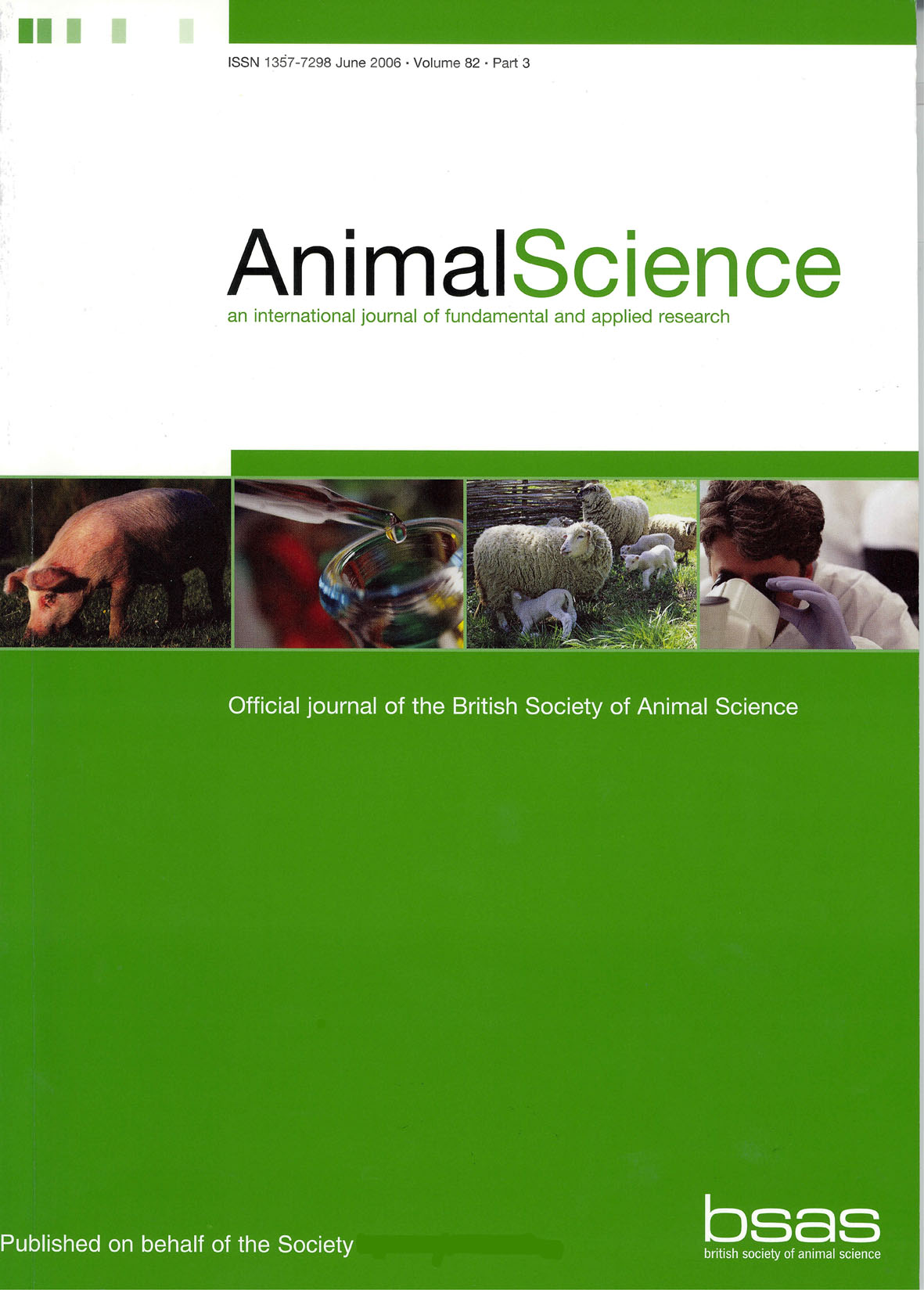Article contents
The utilization of whole and rolled cereals by ewes
Published online by Cambridge University Press: 02 September 2010
Abstract
Two trials were undertaken to investigate the effect of rolling on the digestibility of barley and oat supplements offered to pregnant ewes at 0·43 kg dry matter per day. In the first trial, with ewes given a basal diet of grass silage ad libitum, rolling barley improved the apparent dry matter digestibility of the diet by 0·036 (s.e. 0·0115) and reduced the excretion of whole grains from 0·127 (s.e. 0·0190) of grain fed to almost nil. Method of storage (dried or treated with propionic acid) had no effect on utilization of whole or rolled barley. Grain excretion was lower with whole oats 0·049 (s.e. 0·0147) than with whole barley. In the second experiment, basal diets containing hay or roots ad libitum were supplemented with whole or rolled barley and oats. Excretion of whole grains was very low on the root-based diets and amounted to only 0·047 (s.e. 0·0177) for the whole barley and hay diet. Excretion of whole grains varied between animals and was shown to be a characteristic of the animal. It was concluded that in most situations grain should be given whole to ewes but that it may be advantageous to roll barley when it is given with silage.
- Type
- Research Article
- Information
- Copyright
- Copyright © British Society of Animal Science 1985
References
REFERENCES
- 12
- Cited by


